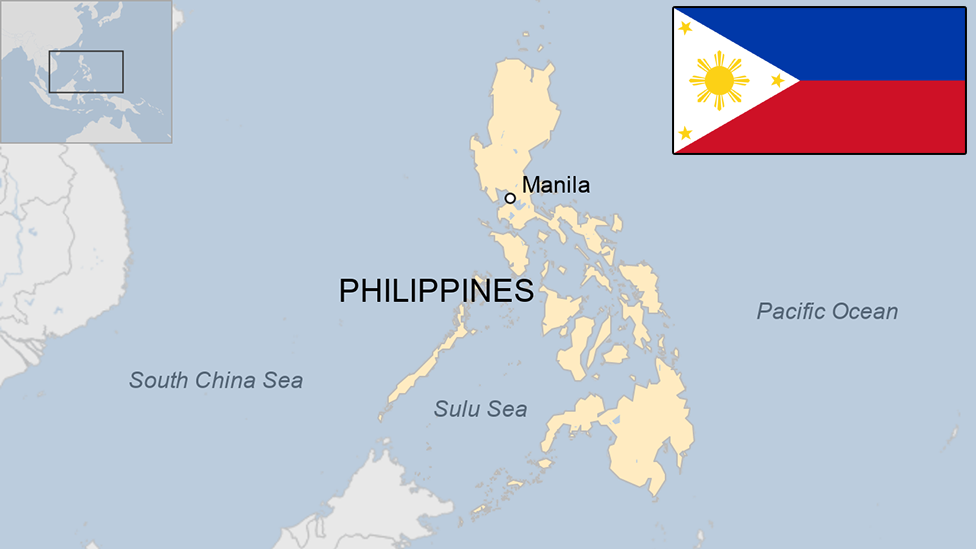Philippines election: Anti-crime hardliner Duterte claims win
- Published
Rodrigo Duterte has a persuasive story to tell, Jonathan Head reports
Hardline anti-crime candidate Rodrigo "Digong" Duterte has claimed victory in the Philippine presidential election.
The official PPCRV poll monitor said the mayor of the southern city of Davao had more than 14.8m votes - about 39% - with 90% of ballots counted.
Manuel Roxas is in second place with 9m (23%). The winner is decided on a simple majority of votes cast.
Mr Duterte has been the long-time front-runner in a campaign also driven by the economy and corruption.
"Duterte Harry" - front-runner in quotes
In pictures: Crowds and queues as Filipinos vote

The five presidential candidates
President Benigno "Noynoy" Aquino is standing down as the constitution limits presidents to one six-year term. Filipinos are also picking a vice-president and local officials.
The Punisher
The PPCRV (Parish Pastoral Council for Responsible Voting), external is accredited by the election commission to monitor counting but its reporting does not represent an official tally.
But Mr Duterte told AFP news agency as his lead appeared unassailable: "It's with humility, extreme humility, that I accept this, the mandate of the people."
He said his law and order policy had been the key to his success.
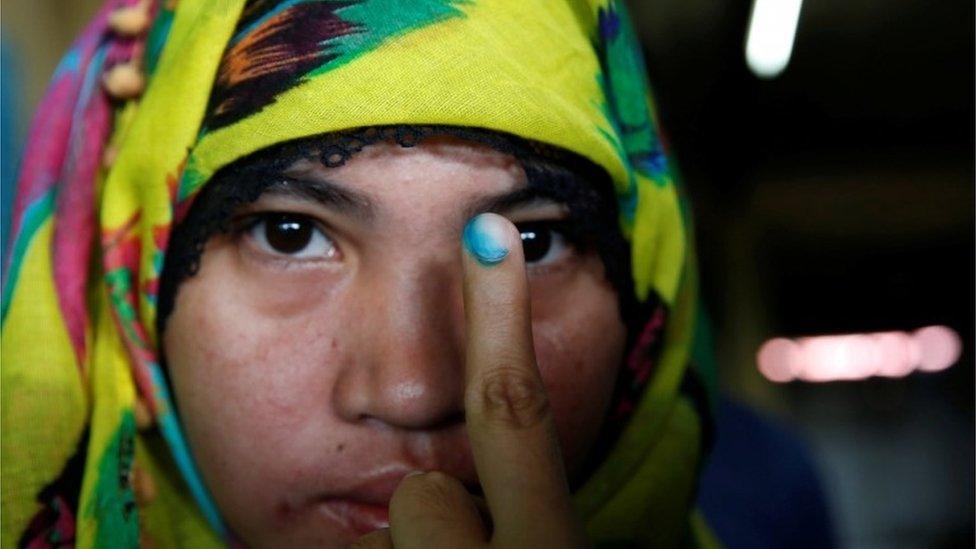
A woman in Davao with her finger stained with ink to show she has voted
"What I can promise you is that I will do my very best not just in my waking hours but even in my sleep," he said.
Mr Duterte has made many controversial statements during his campaign, saying that he would butcher criminals.
A former state prosecutor nicknamed "The Punisher", he has been mayor of Davao for more than 22 years.
He recently joked that, as mayor, he should have been first to rape an Australian missionary murdered in a prison riot, but he later apologised.
The election campaign has also focused on reforming the economy, infrastructure, and on the territorial disputes with China in the South China Sea.

At the scene: Jonathan Head, BBC South East Asia correspondent
Elections here are a cheerful, communal affair with large family groups or neighbours walking into the polling stations to vote together. The constant crowds coming in and out of the elementary school in Manila's Tondo district looked hard to manage. But election officials are well-practised, and voters well-informed.
Plenty of officials were on hand to help voters manage the formidable ballot sheets, listing in this constituency dozens of candidates for the various local and national posts. The enthusiasm across the age and class spectrum for Mr Duterte in this campaign has exposed the weariness of Filipinos with the familiar political faces, who have delivered some economic improvements but little real change in the levels of poverty and corruption.
Mr Duterte has suggested he will disregard democratic checks and balances if they get in the way of fixing the country's problems.
It's a message that has excited and attracted people. Yet the numbers coming to vote here, and the positive and relaxed atmosphere, show that the faith in the familiar rituals of democracy is still as strong here as anywhere in Asia.

Manuel Roxas is a former investment banker and the grandson of the first president of the Philippine Republic.
Senator Grace Poe, a former schoolteacher and first-term senator, is currently third with about 21%.
She has admitted defeat, saying: "I respect the results. Duterte has a mandate. Let's give him a chance."
President Benigno Aquino had been leading attempts to bring together other candidates in an effort to defeat Mr Duterte.
He warned that if Mr Duterte were to be elected, it could mean a return to dictatorship.
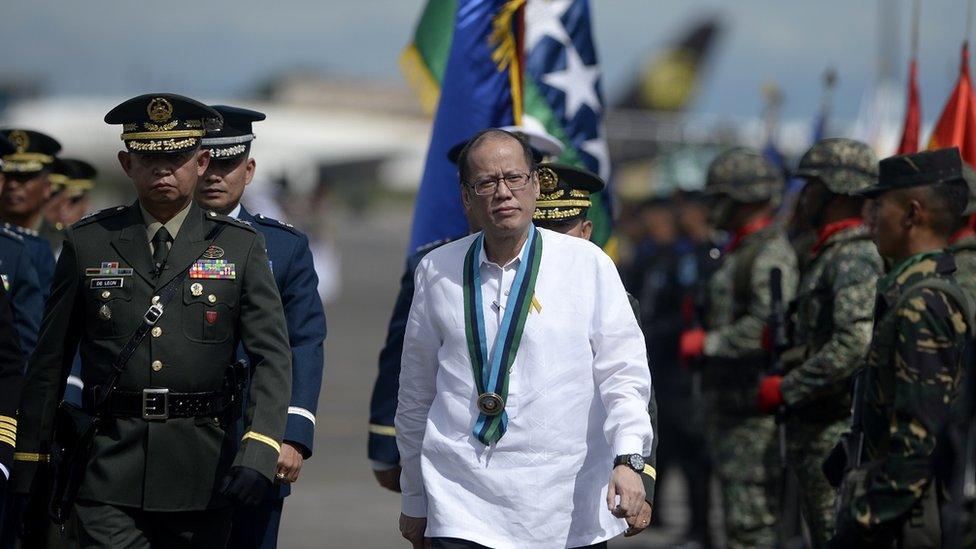
Current President Benigno Aquino can only serve one presidential term
A vice-president, senators and about 18,000 local officials including mayors are also being elected.
Among the candidates for the vice-presidency is Ferdinand "Bongbong" Marcos Jr, the son of late dictator Ferdinand Marcos.
He had been leading the count for much of the day but was overhauled by Maria Leonor Robredo. Nevertheless, the count is extremely close.
With 90% of votes counted, she has 34.89% to Mr Marcos's 34.82%, a gap of fewer than 30,000 ballots in more than 35 million cast.
More than 54 million people were registered to vote across the archipelago of 7,000 islands.
Voting had been extended for an hour in some areas after glitches with vote-counting machines.
More than 100,000 police officers were on duty amid violence ahead of the election.

An alternative look at the election campaign

Love Snapchat? Follow our official BBC News account

- Published8 May 2016
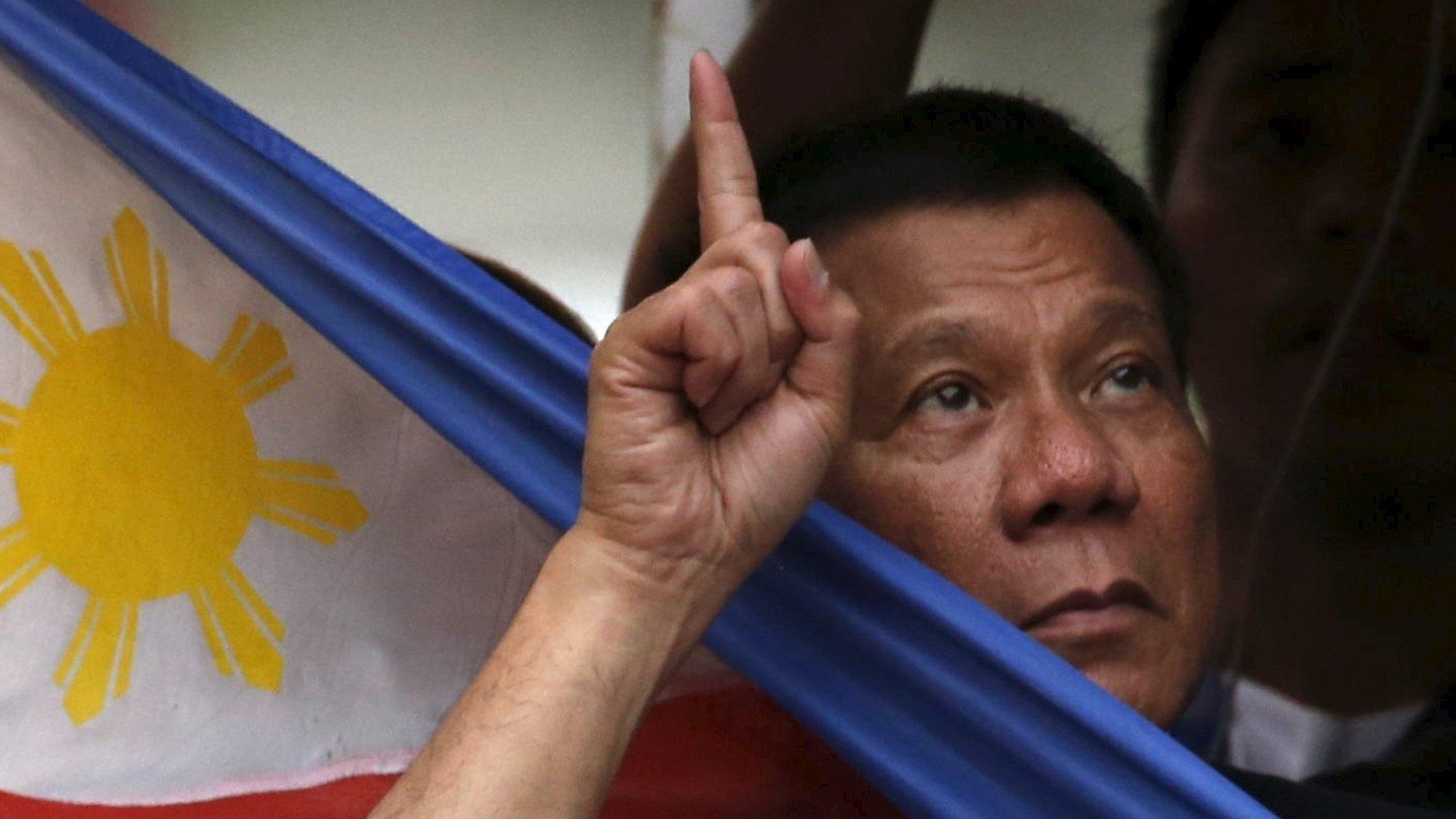
- Published29 April 2016
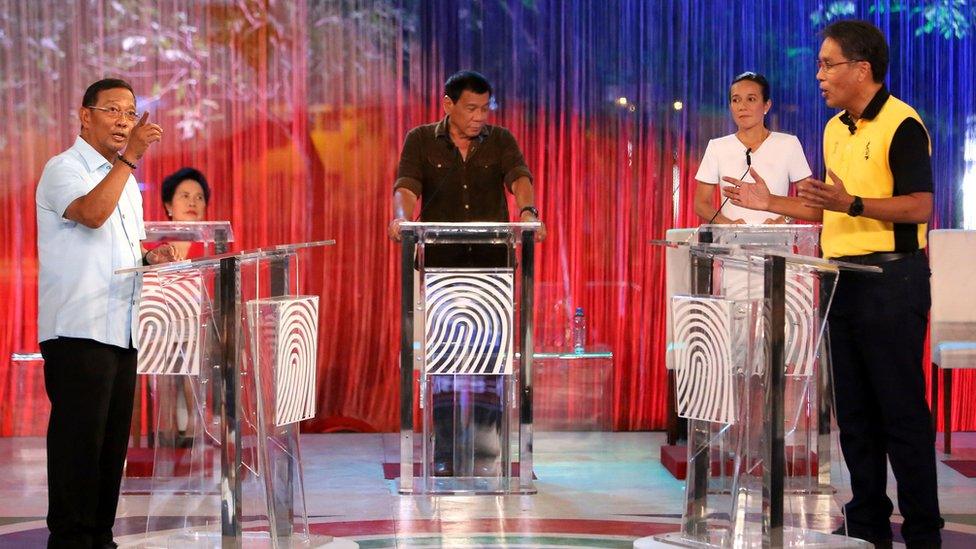
- Published7 July 2023
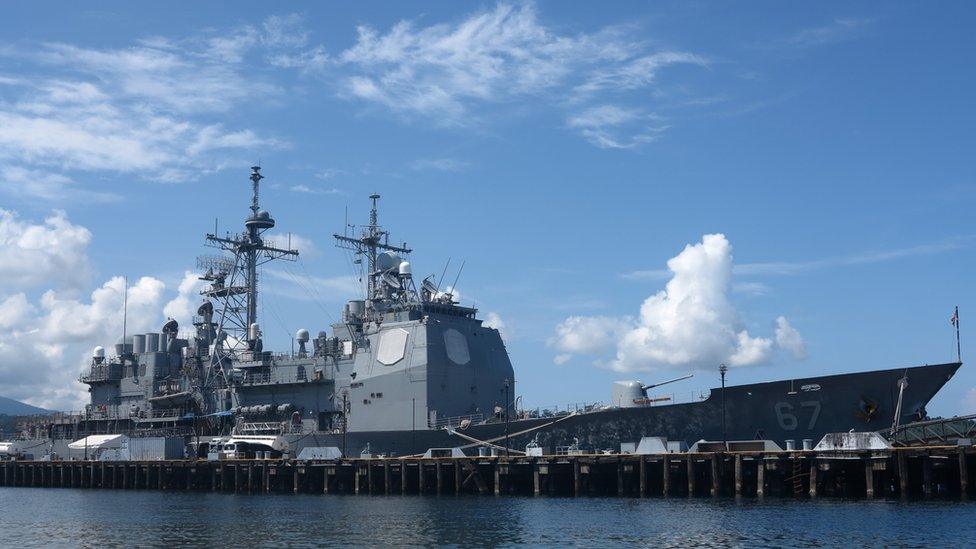
- Published6 April 2016
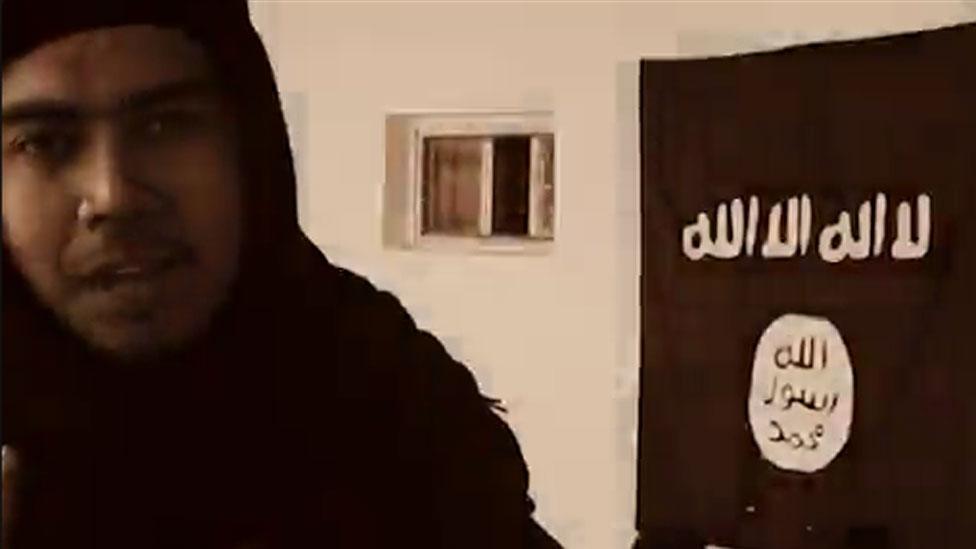
- Published5 July 2023
